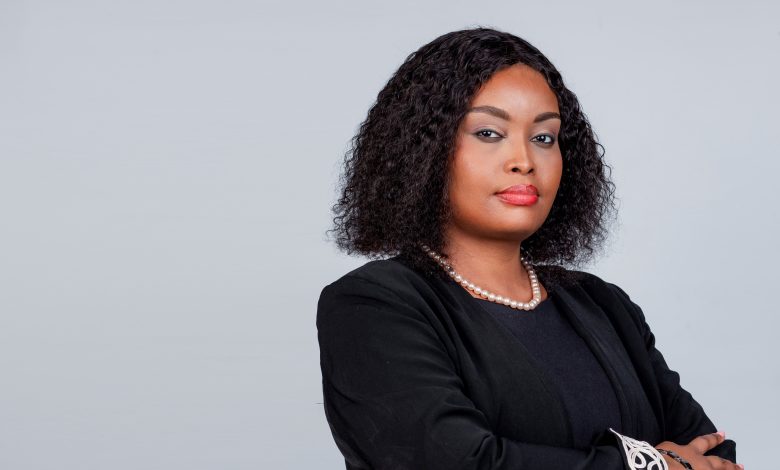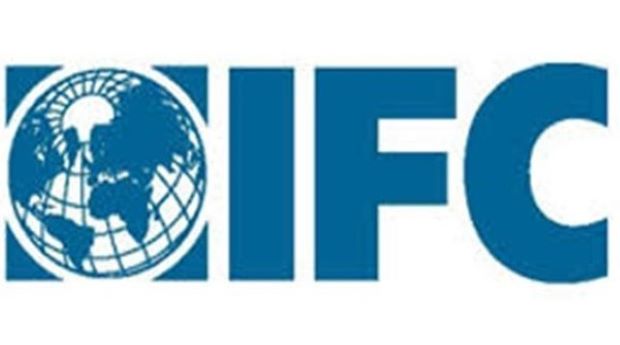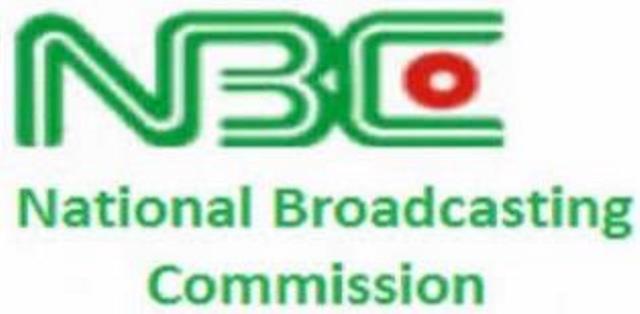Broadcasting
How Access to Finance Changes Lives

By Carol-Jean Harward, Investment Director, Norsad Capital
Africa has undoubtedly made immense gains in lifting people out of poverty. But it’s also clear that there’s still a long way to go, with the rest of the world having made up much more ground in eradicating extreme poverty. If the continent is to meet the United Nations’ Sustainable Development Goal (SDG) of ending poverty in all forms by 2030, then it’s clear that efforts must be redoubled with a focus on innovative solutions that make a tangible difference in people’s lives.

On that front, access to finance is critical. It allows people to take out the loans they need to become homeowners or to study, for example. But it also allows entrepreneurs to access the funding they need to grow their businesses. The formalisation that comes from that access, meanwhile, can make it easier for businesses to take advantage of tax incentives and subsidies, further bolstering their growth.
Fortunately, there are a number of organisations across the continent that have found innovative and exciting ways of providing Africans with access to finance. In doing so, they’re not simply replicating what has worked elsewhere. Instead, they’re taking an approach that recognises the on-the-ground realities of finance in Africa and makes extensive use of the tools that ordinary Africans use most.
A massive need
Before taking a deeper look at the approach some of those organisations are taking, it’s worth exploring how big of an issue access to finance currently is across Africa.
According to World Bank data, just 35% of people over the age of 14 in 28 sub-Saharan African countries had formal bank accounts in 2021. Of course, that average isn’t evenly distributed. Countries with mature formal financial sectors such as Mauritius (nearly 90%) and South Africa (now at 85%) have much higher rates of account holders than the likes of Sierra Leone and Guinea (both under 14%).
Even when you take mobile money – Africa’s biggest financial inclusion success story – into account, 57% of Africans do not hold any kind of bank account, according to Africa Tech. Finding ways of shifting those numbers is absolutely crucial to alleviating poverty and changing lives.
In addition to the examples I’ve already mentioned (of people taking out loans for themselves and businesses) there are a number of ways that access to finance can be transformative. Take savings for example. With easy access to financial products, people can save more easily and securely. That, in turn, makes it easier for them to ride out emergencies, invest in their own and their children’s future, and even eat healthier.
But it also allows people to access government assistance without having to stand in long queues, easily accept remittances from family members working abroad or in another part of the country, and access other financial services such as insurance.
Meeting the need with mobile
Unsurprisingly, one of the most powerful tools in addressing this need for financial inclusion is the mobile phone. In countries with high mobile penetration rates such as South Africa, Kenya, and Nigeria, it’s common for people who might not even have access to electricity at home to have a mobile phone.
As a consequence, mobile money has been a vital enabler for millions of poor people in Africa who do not have access to formal financial services like banks. With mobile financial account ownership and usage continuously rising, it’s becoming the preferred account compared to traditional bank accounts in some places.
Innovative financial solutions like mobile money play a significant role in improving the lives of many people in urban and rural areas. In the past, that was simply down to the fact that it enabled people to send and receive money. But it’s evolved beyond that, giving people access to subscription services and even to sell goods and services across international borders.
MFS Africa has played a particularly important role in driving that evolution. MFS Africa is the largest digital payments hub on the continent. It works closely with mobile network operators, money transfer organisations and financial institutions to bring simple and relevant financial services to unbanked and underbanked clients.
Since its founding, it has connected more than 400 million mobile money accounts and 200 million bank accounts. Additionally, it has helped empower more than 200 000 mobile money agents in Nigeria along with more than 260 000 clients and businesses across the continent. And by the fact that it operates across more than 600 payment corridors, it’s made it much easier for people to send and receive money no matter where it comes from or where it’s going.
Building a brighter financial future
With mobile penetration and rates of connectivity in Africa growing all the time, the role of mobile-first financial services will only grow more important. Indeed, there is no doubt that they will be vital if the continent is to reap the full benefits of financial inclusion. We’ve seen first-hand, through MFS Africa and other portfolio companies, how important innovation is to building that inclusion. It’s something that we’ve long believed in and which forms part of our mandate as a financing provider but it’s also something we’ll keep driving long into the future.
Broadcasting
IFC Strengthens Support for Africa’s Creative Economy with Investment in Filmmakers Market

To enhance access to production services in Africa’s film and entertainment industry, IFC announced an investment into Filmmakers Mart (FMM), Africa’s first integrated digital production platform.

FMM connects creatives to essential production services including location scouting, logistics coordination, catering, and permit acquisition through a centralized system.
It replaces fragmented service sourcing with a cost-effective, time-saving model, using AI-powered tools and automated workflows to enhance service quality and ensure access to vetted providers and filming locations.
IFC’s investment will support FMM to expand from its current markets in Nigeria, Kenya, Ghana, Morocco and South Africa into new markets. It will also fund the development of new platform features, including subscription models, post-production tools, and training programs designed to serve a growing community of creators.
The partnership will help strengthen Africa’s creative economy, helping creative professionals overcome the access to market barriers faced by so many on the continent.
This marks IFC’s first investment in Nigeria’s audiovisual sector and its first co-investment with Sony Innovation Fund Africa.
“We’re building the operating system for the creative industries in emerging markets; an ecosystem of interconnected tools and services designed to eliminate friction, unlock collaboration, and scale access to opportunities for creatives and entertainment businesses,” said Eric Kafui Okyerefo, CEO, Filmmakers Mart.
“Having IFC and Sony Ventures as strategic partners strongly validates this vision. Their support enables us to deepen our impact, expand globally, and continue solving the structural challenges faced by storytellers and producers in these markets.”
Sony Innovation Fund’s investment will provide FMM with access to its global network and industry expertise in content distribution, helping the platform strengthen its market position.
“At Sony Innovation Fund, we are committed to supporting technologies and platforms that empower creators and drive its growth,” said Antonio Avitabile, Managing Director, Sony Ventures, EMEA. “Filmmakers Mart is addressing real infrastructure gaps in Africa’s production ecosystem with a smart, scalable solution. We’re proud to partner with IFC on this investment, and excited to help FMM unlock new opportunities for the region’s vibrant creative community.”
“Africa’s film and entertainment sector is brimming with talent, but talent alone is not enough. It needs the right tools, platforms, and investment to thrive,” said Dahlia Khalifa, IFC Regional Director for Central Africa and Anglophone West Africa. “Our partnership with Sony to support Filmmakers Mart reflects IFC’s commitment to harnessing technology and innovation to support Africa’s creative industries and help scale opportunities for the next generation of storytellers across the continent.”
This partnership, which is helping more women, young people, and underrepresented groups earn incomes and grow sustainable businesses within the digital creative economy, bolsters IFC’s broader aims to create jobs, foster inclusion, and support digital innovation across Africa.
Broadcasting
5 Reasons Why Payroll Outsourcing Might Be the Smartest Move You Make

Accurate and timely payroll impacts costs, tax compliance, and employee morale. Many organisations assume that insourced payroll is inherently superior. Yet in today’s dynamic business environment, this assumption can be more costly. It can burden valuable personnel, increase compliance risks, and saddle organisations with expensive, yet obsolete, software.

Workplaces are becoming more complex through a wide variety of employment conditions, frequent regulation changes, and growth risks (especially when operating in multiple regions). Payroll systems don’t always keep up, which is why over a third of companies are dissatisfied with their internal payroll systems.
“The importance of accurate and timely payroll is undeniable. But assuming that insourcing payroll is inherently superior misses the mark. In today’s dynamic business environment, clinging to outdated internal systems is costly, diverts valuable personnel, and complicates software management,” says Heinrich Swanepoel, Head of Business Development at Deel Local Payroll, powered by PaySpace.
Outsourced payroll’s strategic advantages
Outsourcing payroll is a strategic move that adds scale and flexibility to an organisation’s operations. Whether it’s for five or five thousand employees, one office or multiple countries, using an experienced and technologically capable outsourced payroll provider creates crucial advantages in workforce management and adaptability.
Here are five key reasons why payroll outsourcing is a game-changer:
- Remove Legacy System Limitations and Costs: Outdated payroll software an expose you to delays, errors, and fragmented workflows. Outsourcing with modern technology provides flexibility. Providers can efficiently handle payroll tasks regardless of onboarding surges, market expansions, or workforce adjustments.
- Empower Staff for Higher-Impact Work: Outsourced experts add knowledge, coupled with payroll automation, secure collaboration tools, data integration, and enhanced financial visibility. They help key personnel in payroll, HR, and finance to focus on strategic, high-value priorities.
- Navigate Payroll Compliance: Outsourcing specialists make it their business to know local and international tax rules, labour laws, and data regulations. They use software with built-in compliance checks, audit trails, and secure document tracking. The provider shares and even inherits the responsibility of payroll software compliance such as GDPR, POPIA, SOC 1 & 2, and ISO 27001.
- Flexible payroll management: Outsourced payroll providers use scalable and flexible software to align with organisational changes, enabling their clients to adapt without reconfiguring payroll departments with restructuring or new hires.
- Access Advanced Features: Keeping up with new features and aligning them with operations is expensive and disruptive. Outsourced payroll providers introduce cutting-edge technologies like cloud computing, artificial intelligence, and data analytics as part of their core business strategies. They offer seamless integration with client business systems for real-time, fully compliant payroll operations that the client controls without adding technical risks.
Evaluating an outsourced payroll partner
Outsourcing payroll creates huge advantages. But not all outsourced payroll providers are the same. The best candidates combine human expertise with the advantages of modern cloud-native payroll platforms.
To evaluate a provider, test their payroll expertise and compliance knowledge. Security and data protection are non-negotiable, and assess their track record with other clients. Look at what software they use—the capabilities of the software and how well their people can use those features are as important as the staff’s professional capabilities. Are they masters of their tools as well as their craft?
Interrogate their service levels and how they extend capabilities to clients, such as self-service and ad hoc reporting. Evaluate the technology platform in terms of real-time data access, automated calculations, integration with HR and accounting tools, and compliance.
“Outsourcing payroll isn’t just about saving time — it’s a strategic move that positions your business for growth, compliance, and agility,” says Swanepoel. “With the right partner, you can reduce costs, streamline operations, and focus your energy where it matters most: on your people and your business.”
Broadcasting
Idris, Information Minister Says Only NBC can Suspend Broadcast Licences

Mohammed Idris, minister of information, has reacted to the closure of Badeggi FM radio station in Niger state.

Mohammed Idris, minister of information,
On Friday, Umar Bago, governor of Niger state, ordered the commissioner of police to seal off Badeggi FM radio station over alleged incitement of violence.
A statement by Bologi Ibrahim, chief press secretary to the Niger governor, said the “daily activities of the radio station have been unethical”.
“Governor Bago also accused the owner of the station of incitement of the people against the government and directed that the license of the radio station be revoked,” the statement reads in part.
Reacting in a statement at the weekend, Rabiu Ibrahim, special assistant (media) to Idris, said the ministry has noted concerns raised by stakeholders in the media industry over the governor’s directive.
Idris said the National Broadcasting Commission (NBC) has the legal authority to suspend or revoke broadcast licences.
“While acknowledging the concerns raised, the Ministry notes that the suspension of broadcasting licenses falls within the purview of the National Broadcasting Commission (NBC), as stipulated by law,” he said.
“In light of this, the Ministry welcomes the decision of the Niger State Government to formally report the perceived “unethical behavior” of Badegi FM to the NBC for resolution.
“The Minister appeals to all parties to remain calm, assuring that the NBC has the necessary mechanisms to resolve the issue in a fair and impartial manner.”
According to the information posted on its website, Badeggi Radio 90.1 FM, Minna, is a private radio station established in 2020 by Shuaibu Badeggi.

 General News3 days ago
General News3 days agoNOA Warns of Fake N1000 Notes in Circulation, How to Identify Them

 Telecom3 days ago
Telecom3 days agoMTN @ First-ever CED, Pledges to Address Subscribers’ Concerns

 E-Financial3 days ago
E-Financial3 days agoWest Africa Emerging as Crypto Adoption Epicentre- SEC Boss

 Telecom2 days ago
Telecom2 days agoNCC to Sanction Operators over Regulatory Violations

 General News3 days ago
General News3 days agoNCC, IHS Towers Lead Others To NITRA-ALTON CNII & Telecom Sustainability Conference 2025

 General News2 days ago
General News2 days agoCustoms Ditches Fast Track Scheme for Authorised Economic Operator

 Telecom3 days ago
Telecom3 days agoAirtel Nigeria Raises Infrastructure Spending to $39m

 Broadcasting3 days ago
Broadcasting3 days agoGovernment of Ghana Slams MultiChoice, Insists on DStv Price Cut



















